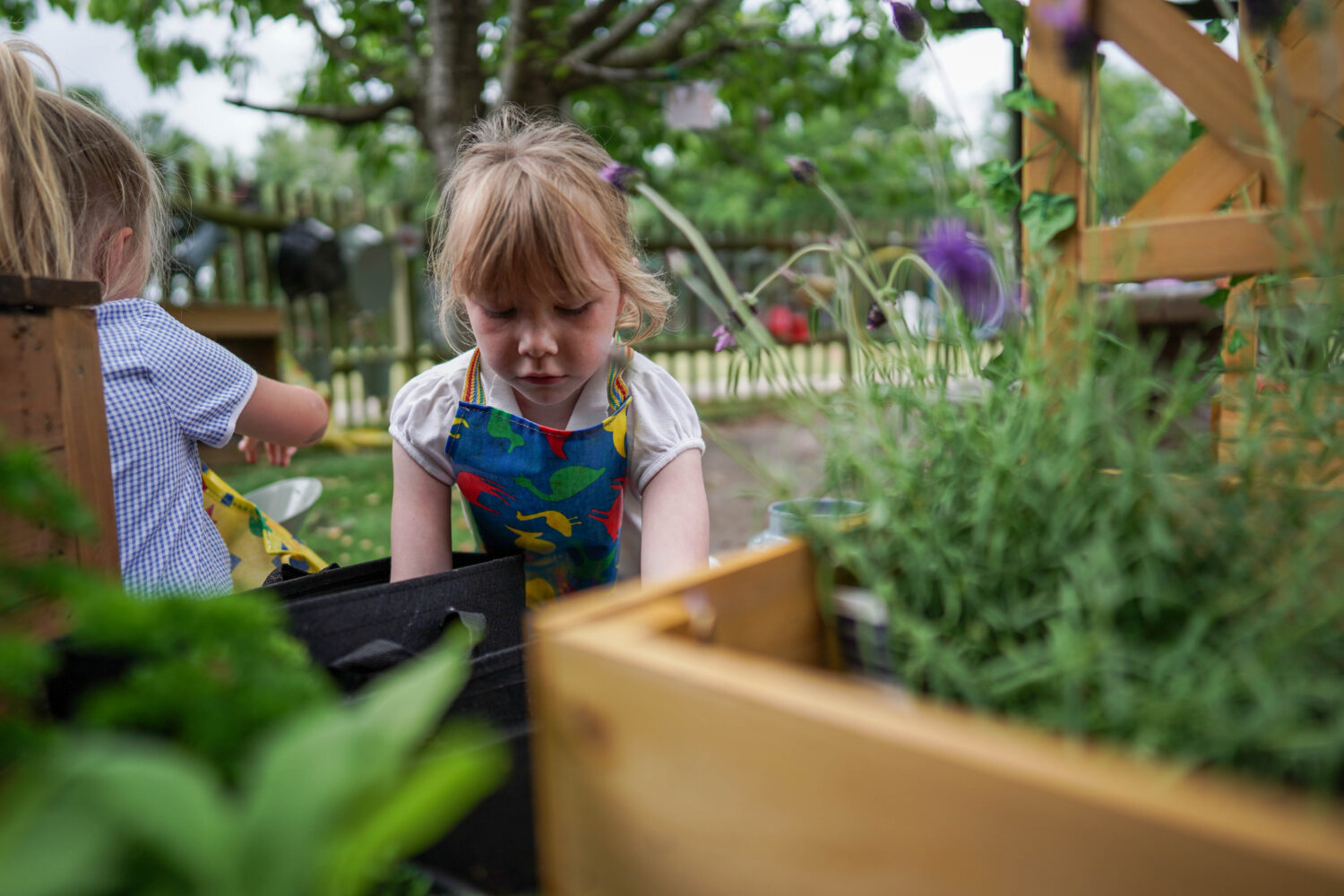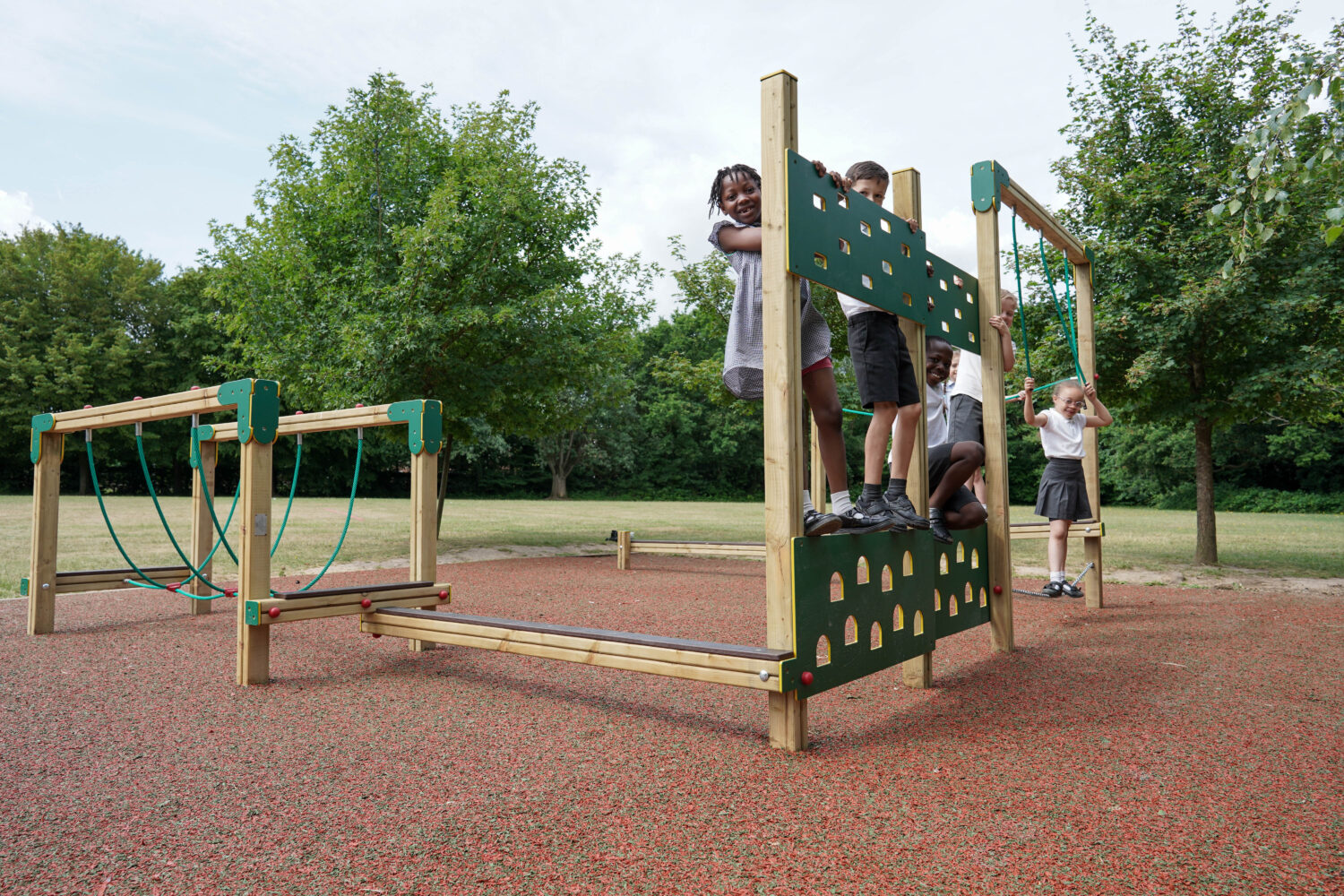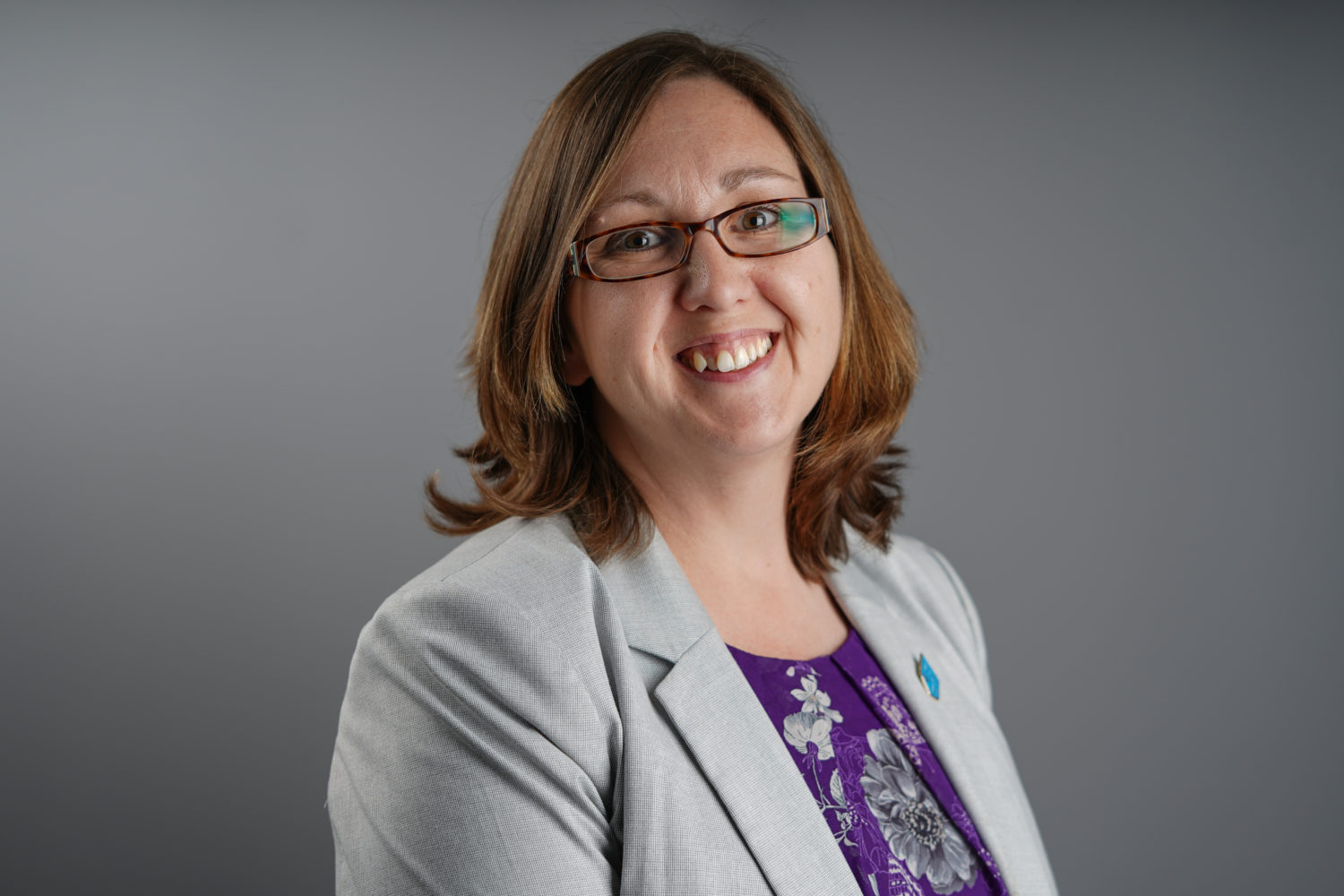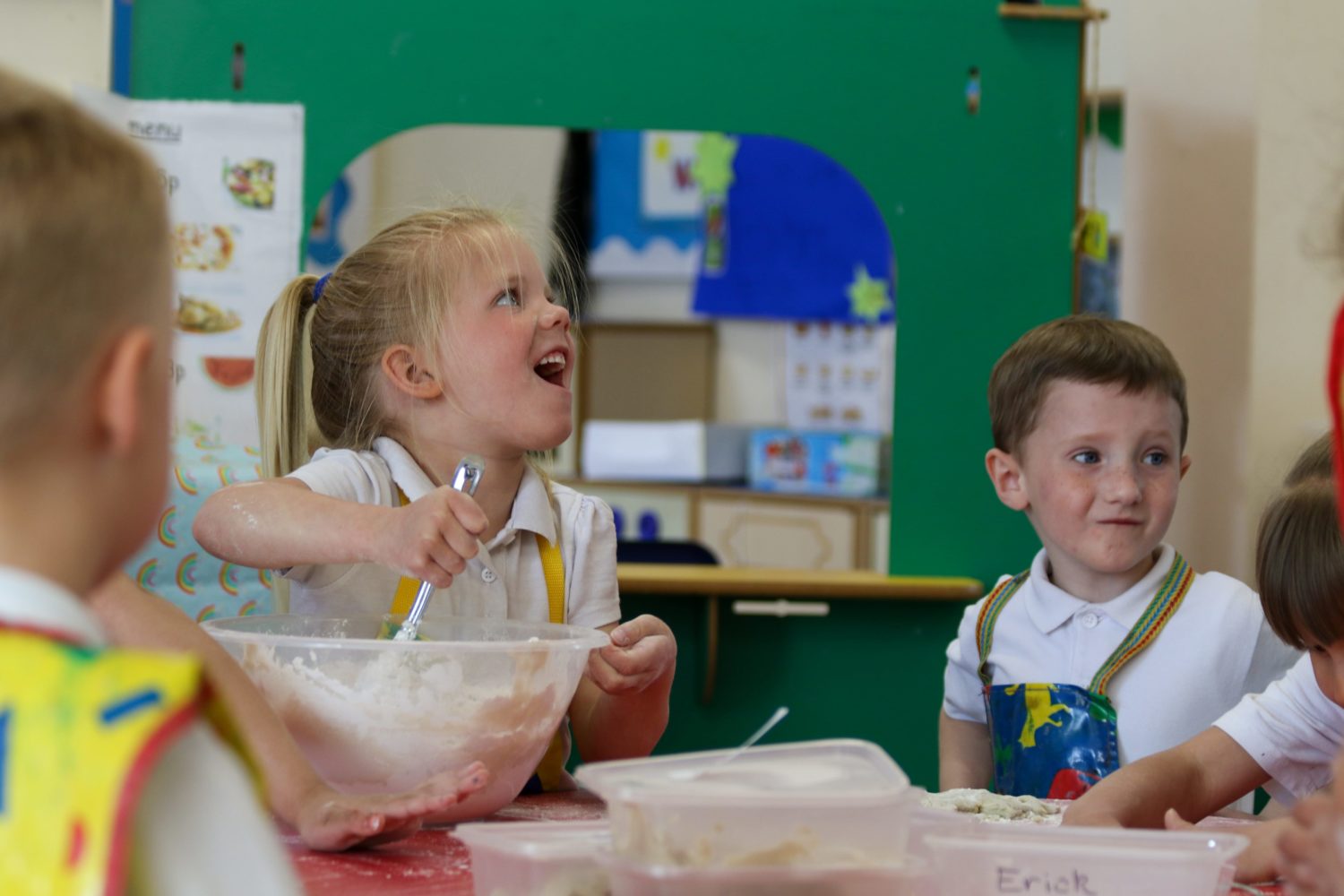School Curriculum
Leigh Academy Molehill is an IB World School.
At Leigh Academy Molehill we follow the National Curriculum with the International Baccalaureate Primary Years Programme as a framework and vehicle for learning. The National Curriculum outlines the skills and knowledge which will be acquired by the time our children leave primary school; the PYP is a way of framing learning in order to help children develop holistically as well as academically.
Learning is organised into six ‘Interdisciplinary Themes’ which, alongside the learner profile, provide children opportunities to acquire the knowledge and develop the skills outlined in the National Curriculum with an overall view of creating conscientious global citizens.
Pupils embark on lines of inquiry stemming from a central idea. Within the context of the Central Ideas, learners acquire the ability to demonstrate and recognise the IB Learner Attributes. The attributes promote learners to be inquirers, knowledgeable, thinkers, communicators, principled, open-minded, caring, risk-takers, balanced and reflective. The ethos behind the programme is to create lifelong learners who ‘develop inquiring, knowledgeable and caring young people who help to create a better and more peaceful world through intercultural understanding and respect’.
‘Leaders have designed a broad and highly ambitious curriculum meticulously. They have extremely high expectations of what pupils will achieve.‘ Ofsted 2023
- Our pupils undertake an exciting, ambitious and diverse curriculum, thoughtfully sequenced and meticulously mapped across all subject areas.
- Pupils’ mastery of reading, writing and mathematics remain at the forefront of everything we do to support them to address disadvantages and to prepare them for a highly successful adult life.
- Central to our core moral purpose, leaders and teachers ensure that our curriculum is improving the life chances of all pupils regardless of their starting points or individual needs.
- Curriculum planning ensures sustained progression of skills and knowledge, both vertically and horizontally.
- The broad, balanced and ambitious nature of the Academy’s curriculum is continuously enhanced and developed to meet the needs of pupils at Molehill. ‘Leaders have carefully considered the knowledge and skills they want pupils to gain and have broken these down into precise steps at each stage, beginning in the early years’. Ofsted 2023
- The National Curriculum is the vital foundation, and we build from this to ensure that, through the IB Primary Years Programme Framework, pupils develop the essential skills and knowledge required to be global citizens and life-long learners.
- It is our ambition to ensure that our pupils benefit from and are inspired by ‘the best that is thought and said’ and as such, our curriculum evolves, is fully inclusive and is relevant to the local, national and global contexts.
- We are immensely proud of our diverse community and our curriculum design centres on the recognition of our pupils as individuals, who each contribute different perspectives, experiences and knowledge and this in turn enhances the learning for others.
- Our Curriculum is fully inclusive and pupils who have SEN and/or are Disadvantaged are well catered for.
- ‘Staff have high expectations of all pupils and ensure they all access the same high-quality curriculum. Teachers regularly check what pupils know and respond quickly to pupils’ needs using a wide range of approaches’ Ofsted 2023.
- Curriculum is adapted when and where necessary, both through leadership review and development, collaborative planning and within lessons during delivery.
- Our curriculum aims to ensure that pupils understand their place in the world, preparing them well for life in modern Britain.
- Integral to our curriculum is our focus on pupils’ wellbeing, mental health and inclusivity and as a result, children feel safe, cared for, respected and listened to.
- Throughout our curriculum there is a strong focus on children’s personal development, nurturing specific talents and cultural capital that will ensure a successful transition to secondary education and increasingly high aspiration for future careers.
- Our pupil admission number is 45 per year group and therefore there are two classes in the academy which have a mixture of pupils from two year groups. As such, some foundation subjects are taught in a two-year cycle which ensures that all knowledge and skills are covered across a two-year period, aligned to each phase: KS1, LKS2 and UKS2.
- At Molehill, we promote the International Baccalaureate Learner Profile Attributes to support the development of life-long learners. Our pupils are inquirers, our curriculum develops their natural curiosity and allows them to apply their thinking skills creatively and in different contexts.
- We strive to ensure that, through our excellent teaching, pupils become highly articulate communicators, who act with integrity and honesty.
‘Teachers are well equipped to make the right adaptations for pupils, including those with special educational needs and/or disabilities’ Ofsted 2023
- Teachers at Molehill demonstrate expert knowledge of pedagogy and each subject.
- Highly effective implementation of the curriculum includes:
- Teachers plan high quality sequences of learning which support pupils to be appropriately challenged and enables them to think, articulate, write and problem solve fluently.
- Teachers create regular opportunities for pupils to engage with retrieval tasks which support knowledge to be embedded in the long term memory
- Teachers implement astute and adaptive questioning which deepens understanding by developing both prior understanding as well as the learning of new concepts.
- Questioning develops pupils as inquirers who take ownership of their learning through their active and collaborative engagement. It is through this process that we are developing thinking, curious, learners and this ensures that knowledge sticks.
- Extended writing opportunities and deliberate practice within lessons ensure that pupils are able to independently problem solve, apply their knowledge fluently and master approaches to learning
- Teachers employ Conferencing effectively to provide regular feedback which supports pupils in addressing misconceptions, enabling them to develop their conceptual understanding and apply this in different contexts. This creates highly reflective learners who engage with success criteria to self assess and make progress independently
- Teachers are particularly focused on developing pupils’ reading skills. They develop fluency, enjoyment and confidence.
- There is effective and appropriate implementation of digital technology to enhance learning experiences.
- Teachers deliver well-structured and thought-provoking learning opportunities both in and outside of the classroom.
- Teachers have strong subject knowledge which continues to be developed through regular training opportunities.
- Subject Leadership professional development is a priority to ensure that leaders at all levels continue to drive progression across the broad range of subjects.
- Teachers present subject matter clearly, promoting appropriate discussion about what is being taught and they astutely employ questioning to further develop knowledge.
- Teachers check pupils’ understanding systematically, identify misconceptions accurately and provide clear, direct feedback. They respond and adapt their teaching as necessary to meet the individual needs of pupils.
‘Pupils’ end-of-key-stage outcomes in the past do not reflect the high achievement of pupils currently in the school. Leaders’ effective work to develop the curriculum means that pupils are learning exceptionally well.’ Ofsted 2023.
As a result of our well-constructed and well-taught curriculum, pupil outcomes at Molehill go from strength to strength. Pupils make good progress from their starting points with attainment levels rising year on year. Disadvantaged pupils also make good progress from their starting points. The pupil premium grant is used carefully and appropriately to ensure that their needs are fully met, both across the broader curriculum, and in extra-curricular provision.
Assessments across all year groups enable teachers to make astute decisions about both intent and implementation of the curriculum. From these assessments, data is meticulously analysed to ensure that pupils who need additional intervention, within classrooms, are quickly identified and effective strategies eradicate these gaps in knowledge and skills. Teachers and leaders monitor progress on a termly basis, with Progress Interviews taking place directly after Data Capture. Regular opportunities for robust moderation practices are created to ensure that all attainment and progress data is accurate. Data Capture takes place collectively to ensure that data rich discussions are well-supported by leaders.
Pupils are supported to transition to each stage of their education in a highly effective way. In each stage within the academy we plan comprehensive transition activities, including bespoke social stories for individual pupils wherever necessary. We work closely with local Secondary schools as well as external organisations, to ensure that when pupils leave the academy, they are successful in their next steps in education. This includes both academic and social preparation for the future, embedded through the PYP Framework.



